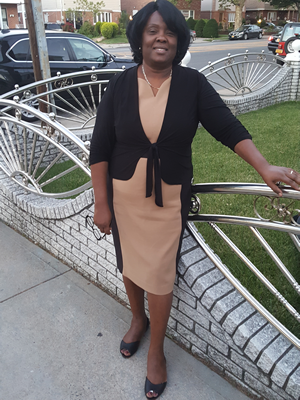10 Tips For A Healthy Old Age
1. Live the Active
Regular exercise is one of the biggest keys to physical and mental well-being. An active life will help you stay fit enough to keep your freedom going where you want and doing your own activities. Regular exercise can prevent the onset of chronic conditions such as heart disease, diabetes, depression, and arthritis, and so on.
Tips: The key is to stay active, so do something you’ll enjoy. If you’re not the type of person who regularly sports regularly, instead you can take a walk or ride a bike every day. Try to make sport as your routine activity. Think about what’s best for you, consult your doctor often, and move on!
2. Eat Healthy Food
The majority of adults consume more than double the daily sodium intake than recommended, which can lead to hypertension and cardiovascular disease. Most of this high sodium intake comes from food and packaged foods.
Tips: Eat nutrient-dense foods like fruits, vegetables, and whole-grain foods. Avoid sweet, salty foods, and packaged or processed foods. Remember that everyone has different dietary needs, follow your doctor’s advice on dietary restrictions.
3. Maintain Your Brain
One in eight older adults (age> 65 years) in the United States and some other countries suffer from Alzheimer’s disease, whereas some cognitive decline is a normal part of aging. Studies have shown that lifestyles that stimulate cognitive stimulation through active learning will slow down cognitive decline.
Tip: Never stop learning and challenge your mind. Take dance lessons, learn a new language, attend a lecture at a local university, learn to play a musical instrument, or read a book, for Muslims to try to memorize the Qur’an.
4. Build Social Relationships
Nearly 30% of parents who live alone and live alone feel the loneliness of the heavy. Changes in life such as retirement, health problems, or loss of spouse, can lead to social isolation.
Tips: Always keep in touch with your family and friends, especially after experiencing significant life changes. Schedule regular time to meet friends and family over tea, eat together once a week, or do other activities together. Invite other friends who may feel lonely or isolated.
5. Enough Sleep
Humans can be more resilient with no food than without sleep. Parents need as much sleep as other adults, seven to nine hours per night. Sleep deprivation can lead to depression, irritability, increased risk of falling, and memory problems.
Tips: Create a regular schedule to sleep. Keep your bedroom dark and free of noise when sleeping, avoid watching television or playing internet while in bed. Stay away from drinking coffee at night.
6. Reduce Stress
As we get older, there will be changes in our stress state and so does our ability to cope with stress. Long-term stress can damage brain cells and cause depression. Stress can also cause memory loss, fatigue, and decreased ability to fight and recover from infection. In fact, it is estimated that over 90% of diseases are caused or complicated by stress.
Tips: We can not completely avoid stressful situations but we can learn good techniques to cope with stress. Take care of yourself when you are stressed with enough sleep, exercise, and eat nutritious food. Talk to people you trust or who can advise you on your stress, and try to do some relaxation techniques, such as circular breathing, yoga, or meditation and if you are a Muslim wake up to a third of a night praying tahajud. Remember to always keep things in perspective, try to accept and behave in a way that you can not control.
7. Try Prevention
Many common accidents, diseases, and health conditions of geriatric health, such as diseases, chronic diseases, depression, and weakness, can be prevented.
Tips: To prevent illness, wash your hands after completion of toilet and before meals. To prevent falls, keep objects in your home that can cause you to stumble or slip, use aids as a handle or support, wear appropriate footwear, take vitamin D and calcium.
8. Maintain Health
Much of our health is not controlled by the health care system but by our own actions, our environment, social factors. Also do not completely rely on a doctor because a doctor may not be 100% perfect. Medical errors are possible. The more patients who play a role in maintaining and caring for their own health, the more they are satisfied with the care they get.
Tips: Think of ways to keep your health by changing your lifestyle. Contact your doctor if you have concerns about your health. Show me a list of your current prescription and non-prescription drugs, including herbal supplements.
9. Create a Community / Association
Create or join a community / association in social activities or recitation.
Tips: Join a community / association that makes you happy and comfortable and not stressful.
10. Save Important Information
Keep information or instructions about handling your medical emergency, as well as important phone numbers when there are problems in your health.
Tips: Take the time to understand all the instructions and information.













 Hits Today : 1355
Hits Today : 1355 Total Hits : 747295
Total Hits : 747295 Who's Online : 1
Who's Online : 1